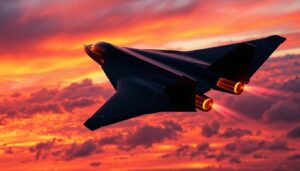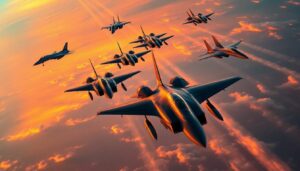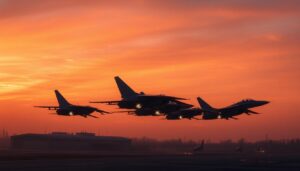Picture the scene: A Western fighter aircraft and a Russian aircraft face-off. Who stays alive? This question leads to heated debates on its own. Are Russian aircraft truly better anyway? A balanced study is what we look at here. We’ll see about the major differences between the two.
Main Attributes Used for Comparison Between Aircraft
How are we to say which aircraft is “better”? It is not just about the looks. Few paramount processes try to compare them. Speed, radar, and armament are all fundamentally important.
Speed and Manoeuvrability
How fast can the jets go? How fast can they turn? This goes a long way in a dog fight. The Su-35 is a major Russian jet. Highly manoeuvrable; think of it as that super-fast sports car. The F-22, an aircraft built for speed, is the main U.S. fighter capable of enduring the punishment of high G forces. Russian planes are usually better in the dogfight rather than in straight-line acceleration.
Avionics and Radar Systems
The radar of the jet is like its eyes. Can she see far? Can she track many targets? Electronic warfare abilities are also important. EW appears to be a powerful tool against the Russian grade. Western technology is much better in sensor fusion: combining data from lots of sensors together, so the pilot knows what’s going on.
Weapon Systems
What kind of weapons will they carry on-board? What kind of range do those weapons have? The Russian R-77 missile is a renowned air-to-air missile with good range. AIM-120 is another Western missile, considered to be accurate. A targeting pod makes precise strike on ground targets possible.
Strengths of Russian Fighter Aircraft
Airframe Design and Aerodynamics
The Russians have a knack for aircraft design. Thrust vectoring allows for very tight turns. The novel designs give them an aerodynamic advantage. Such aircraft design becomes practically impossible to match in close combat. It is like designing a ballet dancer in the air.
Electronic Warfare Capability
Russia has an excellent reputation for EW. These systems are able to blind enemy radars. They are also capable of providing protection to their jets against missile attacks. This capability bestows a major advantage in a fight. Imagine using a shield in an electronic fight.
Operate and Adaptability Considerations
Russian jets can operate on rough airstrips. These jets can perform a plethora of missions and activities. They are, thus, applicable in different scenarios. Adaptability in multiple roles is like having a Swiss army knife instead of just a hammer.
Strengths of Western Fighters
Stealth Technology
Jets like the F-22 and F-35 are designed to be hard to see on radar. This is called stealth. They also try to hide their heat. This helps them sneak up on enemies. It’s like being invisible to the other side.
Network-Centric Warfare Capabilities
Western jets, via networking, allow communication of data with any allied air or naval platform. This enhances the awareness of battlefield dynamics. An analogy would be all team members being aware of enemy positions. This enhances interoperability and situational awareness.
Pilot Training Technology Integration
Western pilots have an extensive training program. In addition, advanced systems are also available to assist them in operating aircraft. This situation can lead to great effectiveness in combat. Skilled drivers with a high-tech car.
Case Studies and Performance in History
Examination of Syro-Arab War
The Syrian conflict saw the participation of Russian-made jets. The performance of those aircraft? Supporting the Syrian forces. Some say their achievements and misfortunes are about interspersed.
Analysis of Past Conflicts
It was during the Cold War that Russian and Western jets collided but indirectly. A few examples do exist. These meetings revealed both strengths and weaknesses. The historical performance says a great deal to us.
The Future of Fighter Jet Development
Artificial Intelligence and Autonomous Systems
The AI could reshape the flying of jets. The AI could fly the jet. It could identify and select targets. Simply put, the AI would have much quicker reaction times than a human operator.
Hypersonic Weapons
Hypersonic missiles travel incredibly fast and hit the target almost instantly. This will, in itself, change air combat dynamics. Defenses against these weapons will not be easy.
Conclusion
So, are Russian jets better? That is not a question with an unambiguous yes or no answer. Each has its own assets and liabilities. It is frankly mission-dependent. Suffice it to say, pilot skill is indeed a big factor. Other than that, air combat remains a very changing discipline. Future changes will introduce even more in terms of new technology. It is a very interesting debate, and it bespeaks the tremendous amount of energy that has been spent on these jets.



